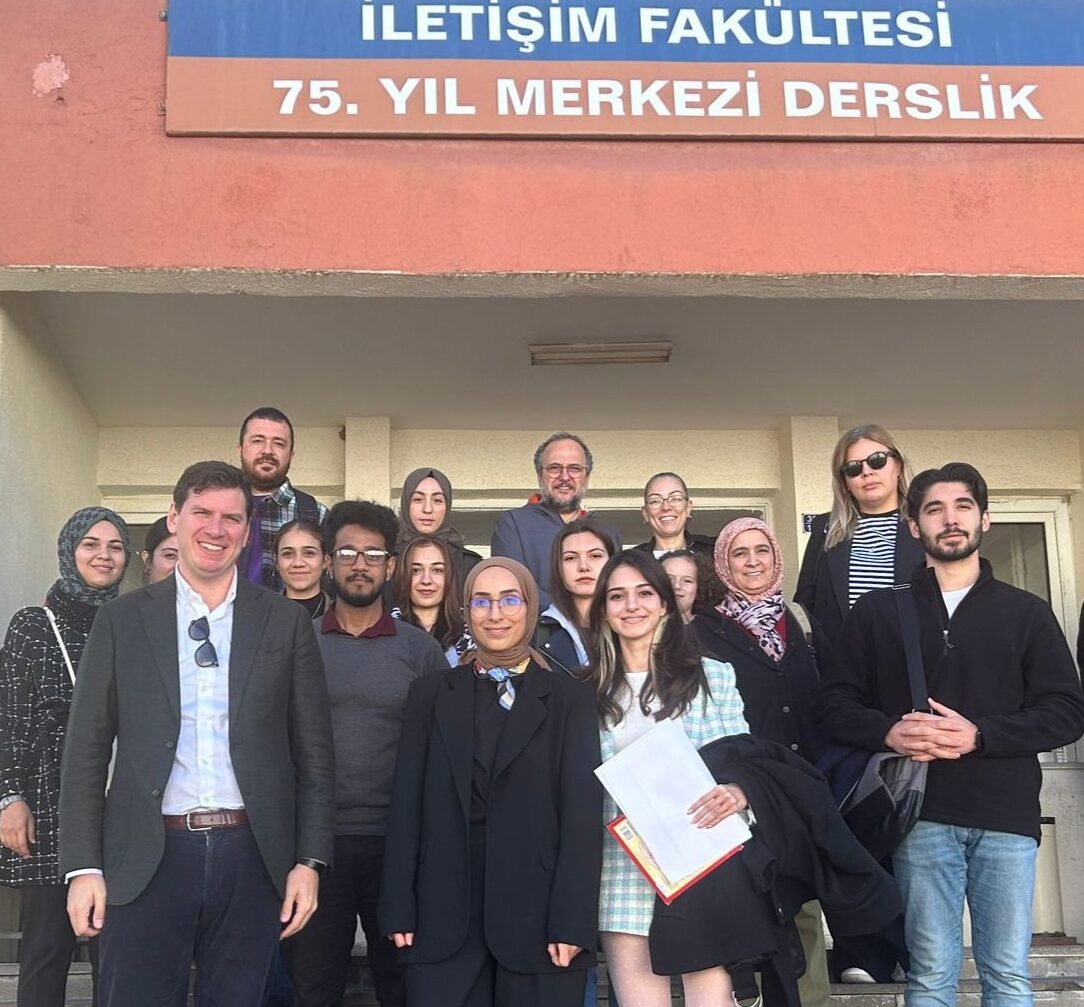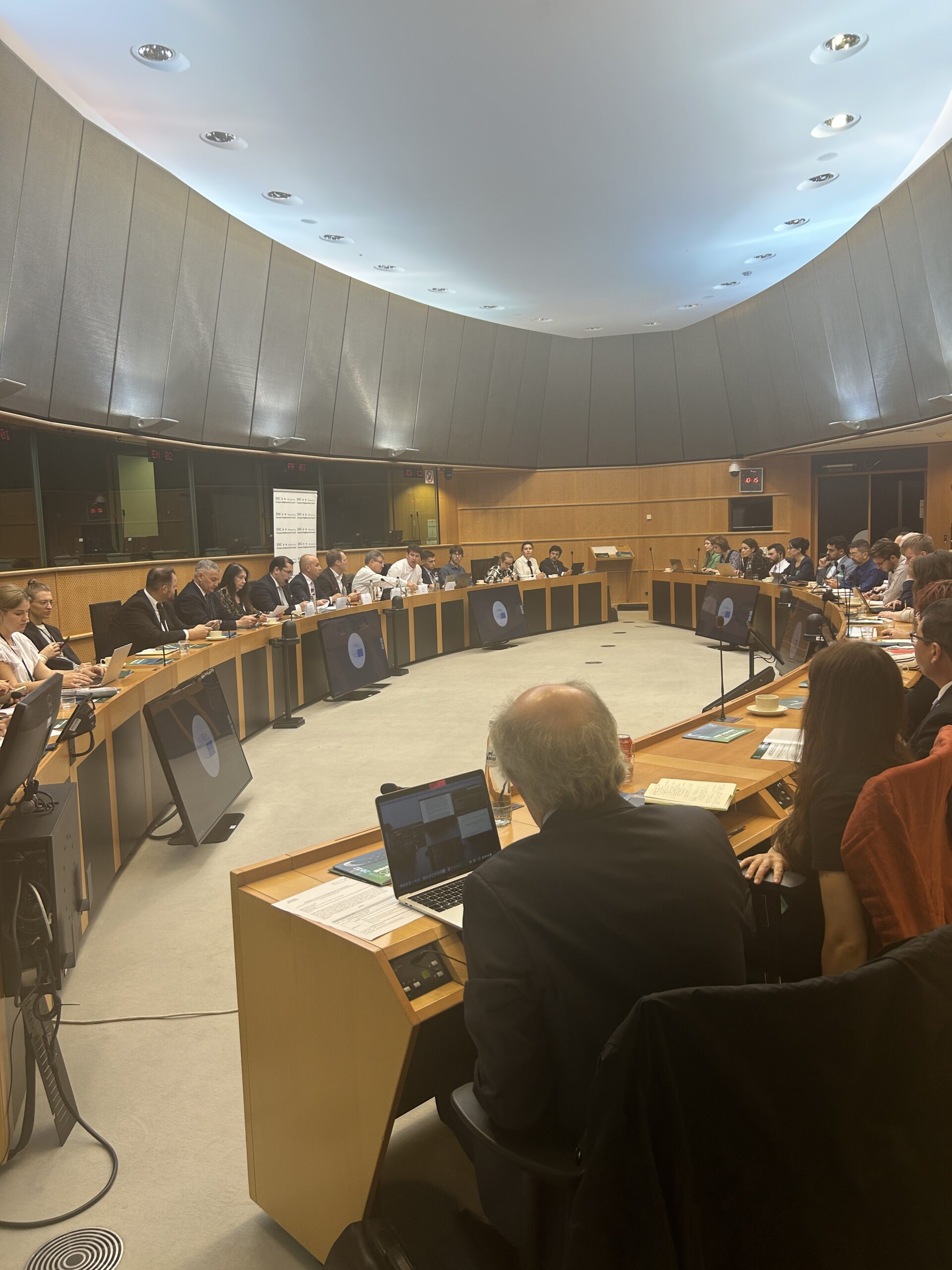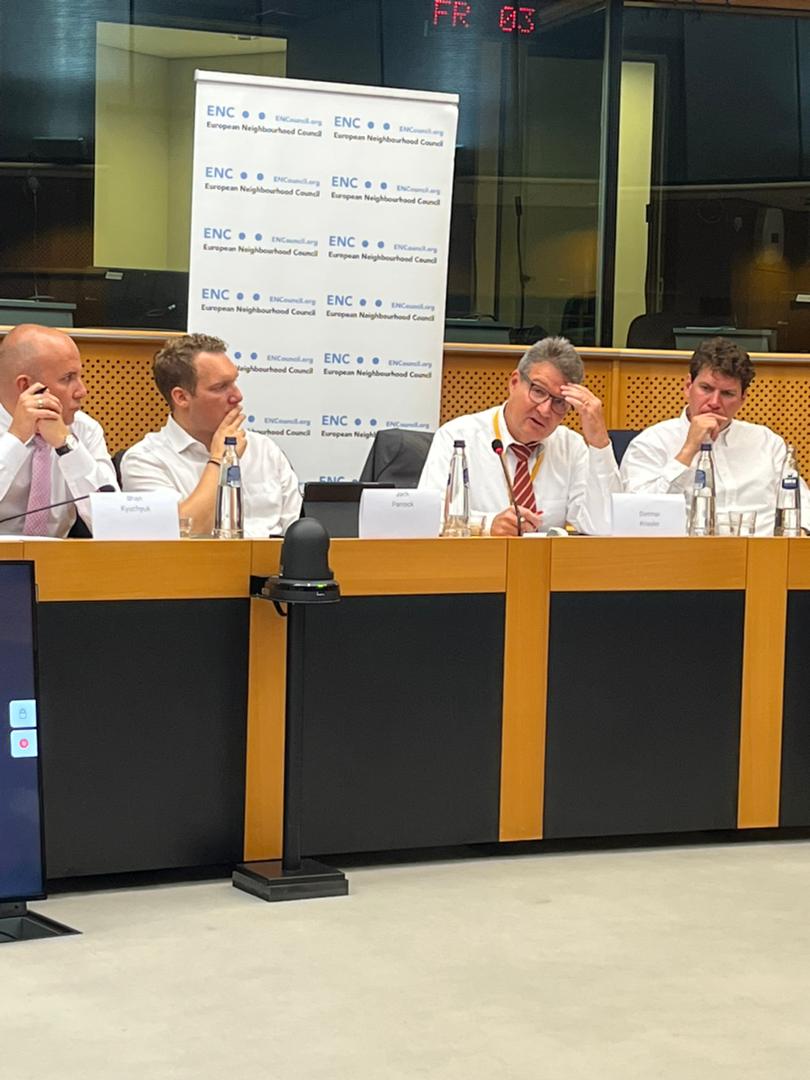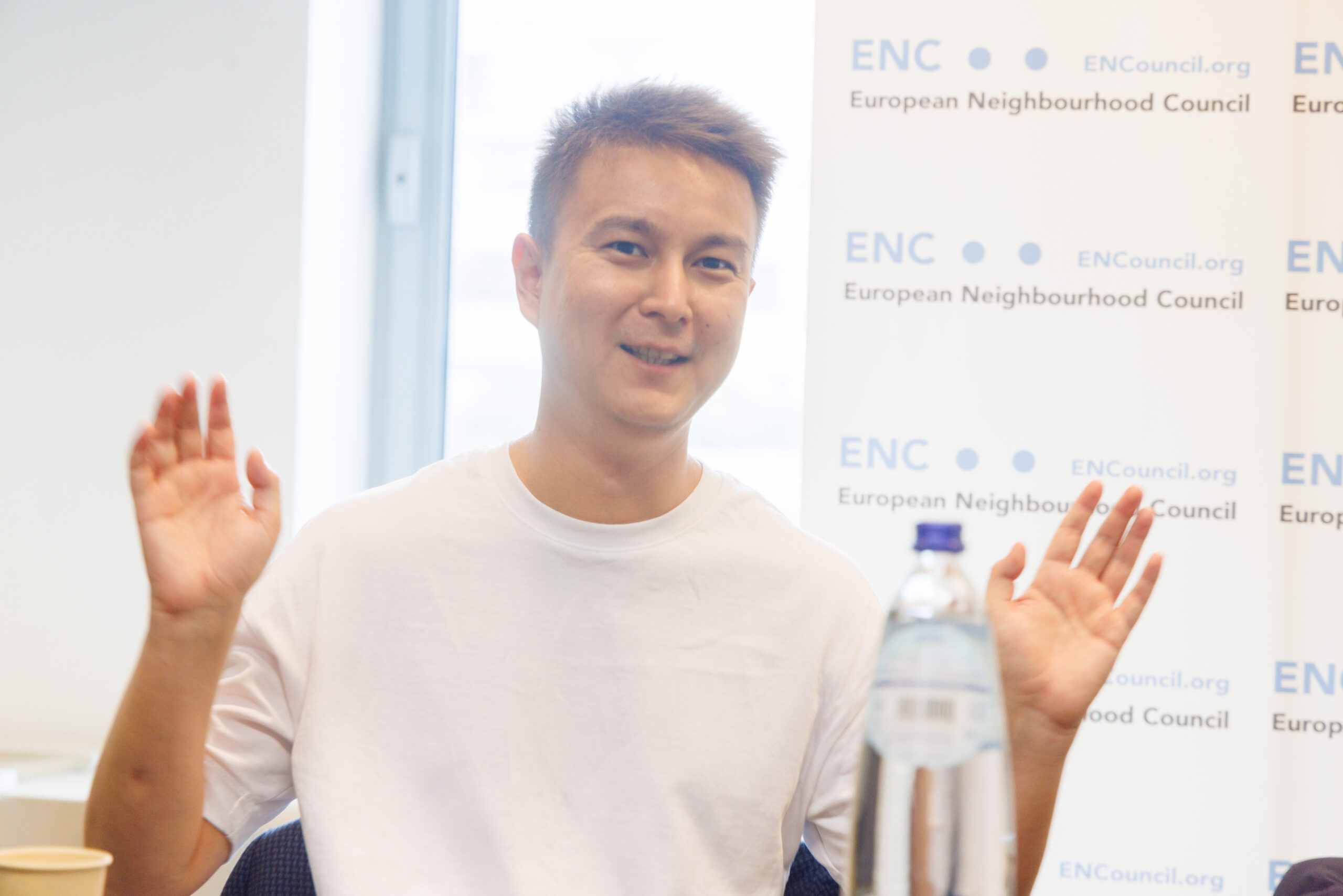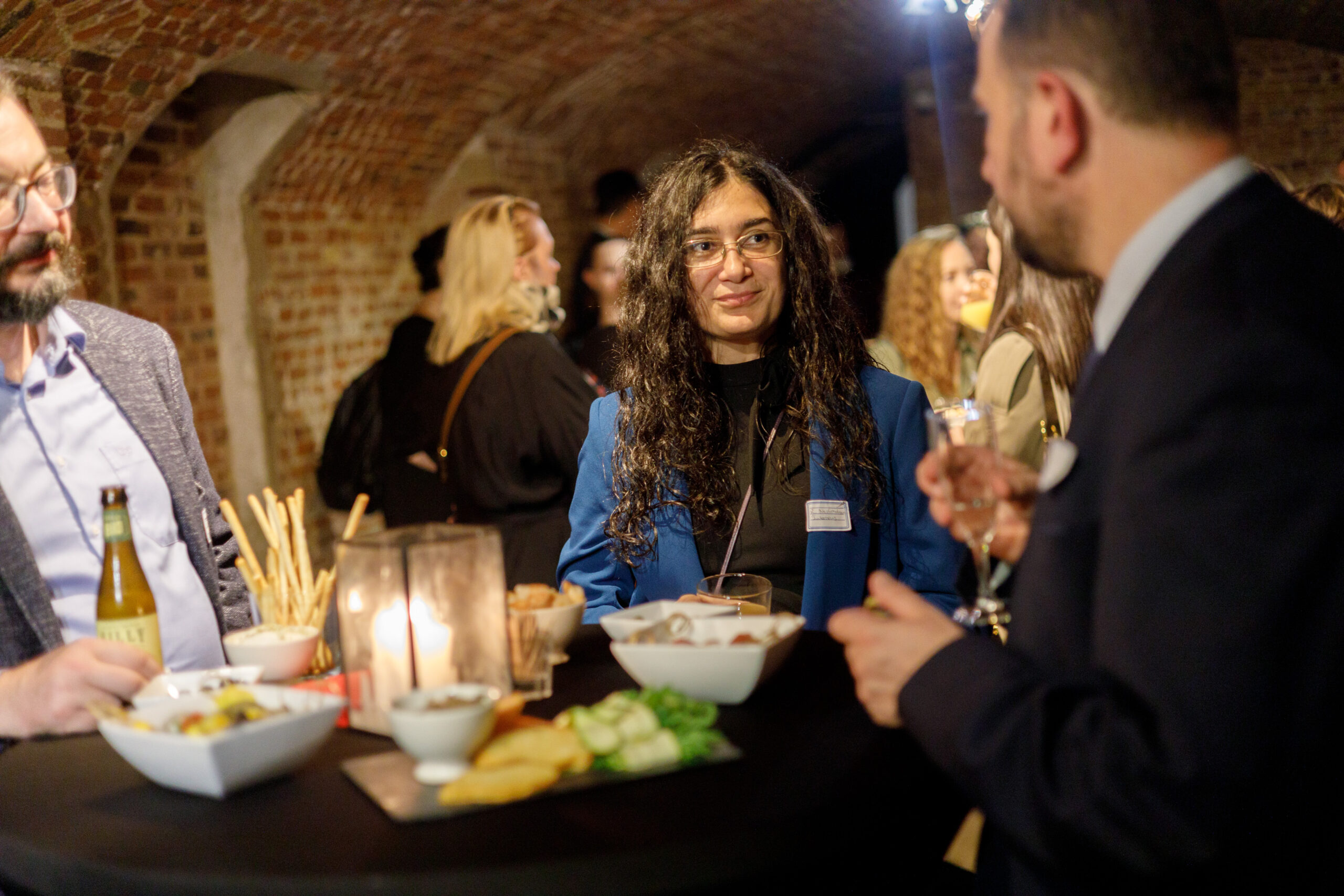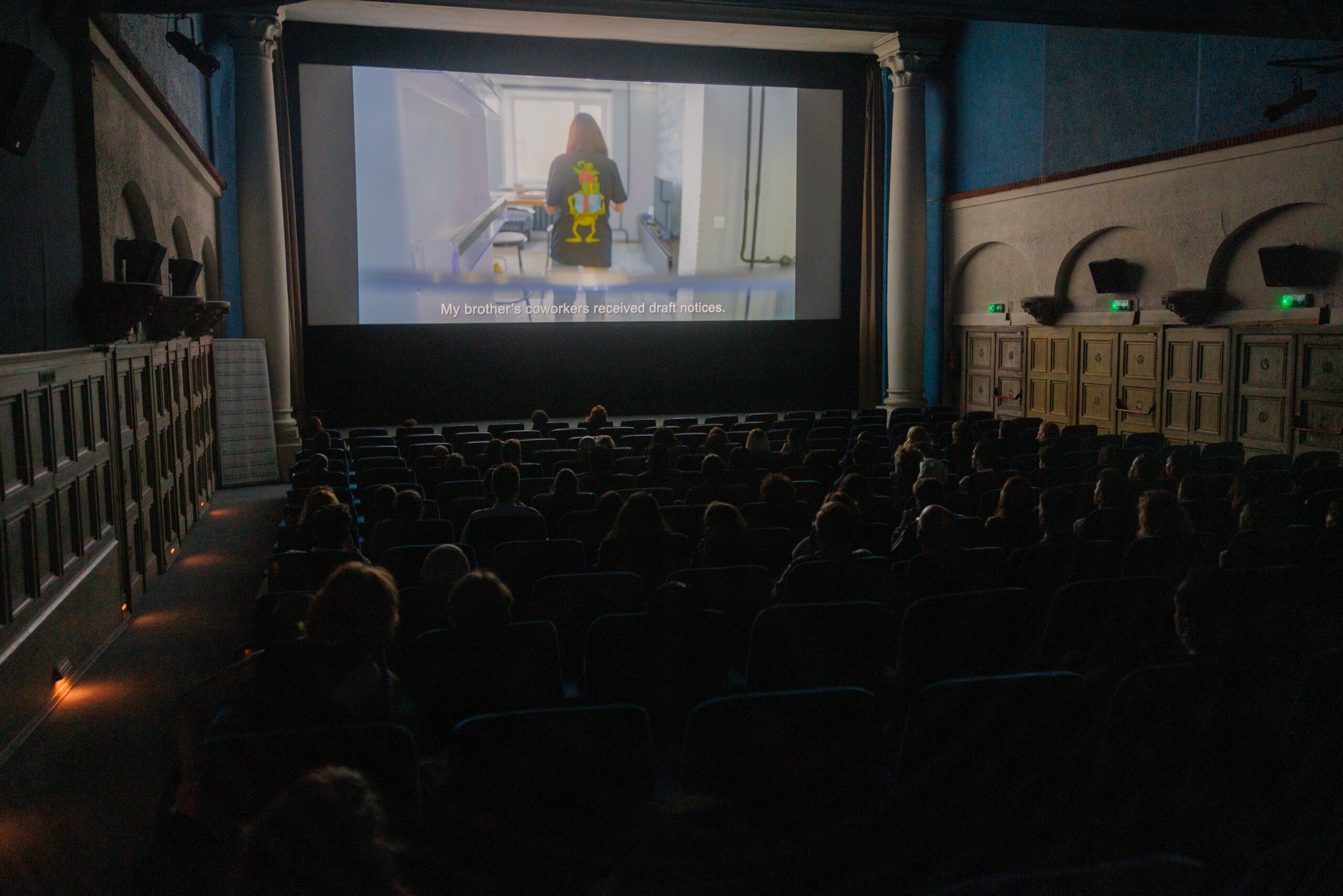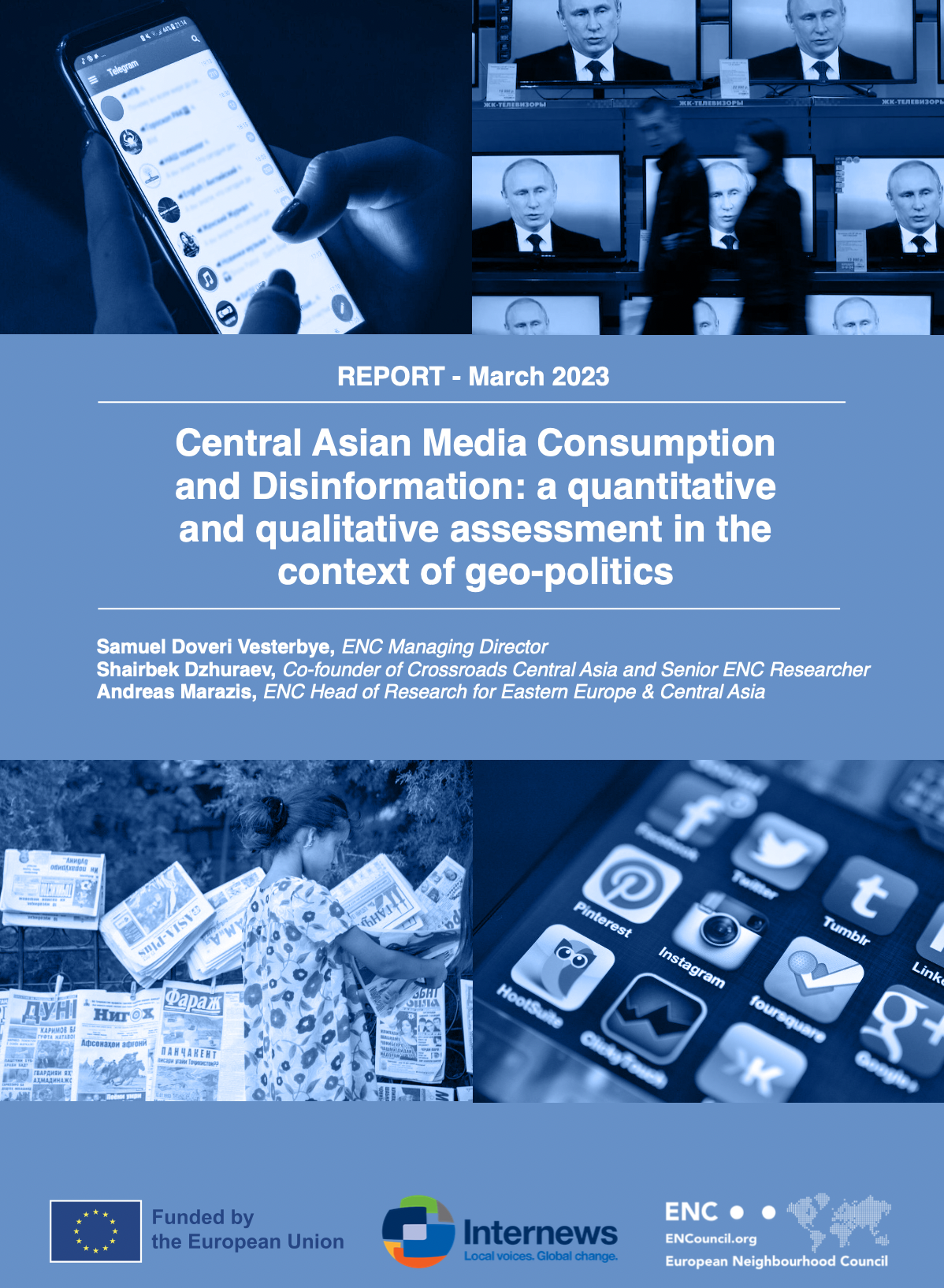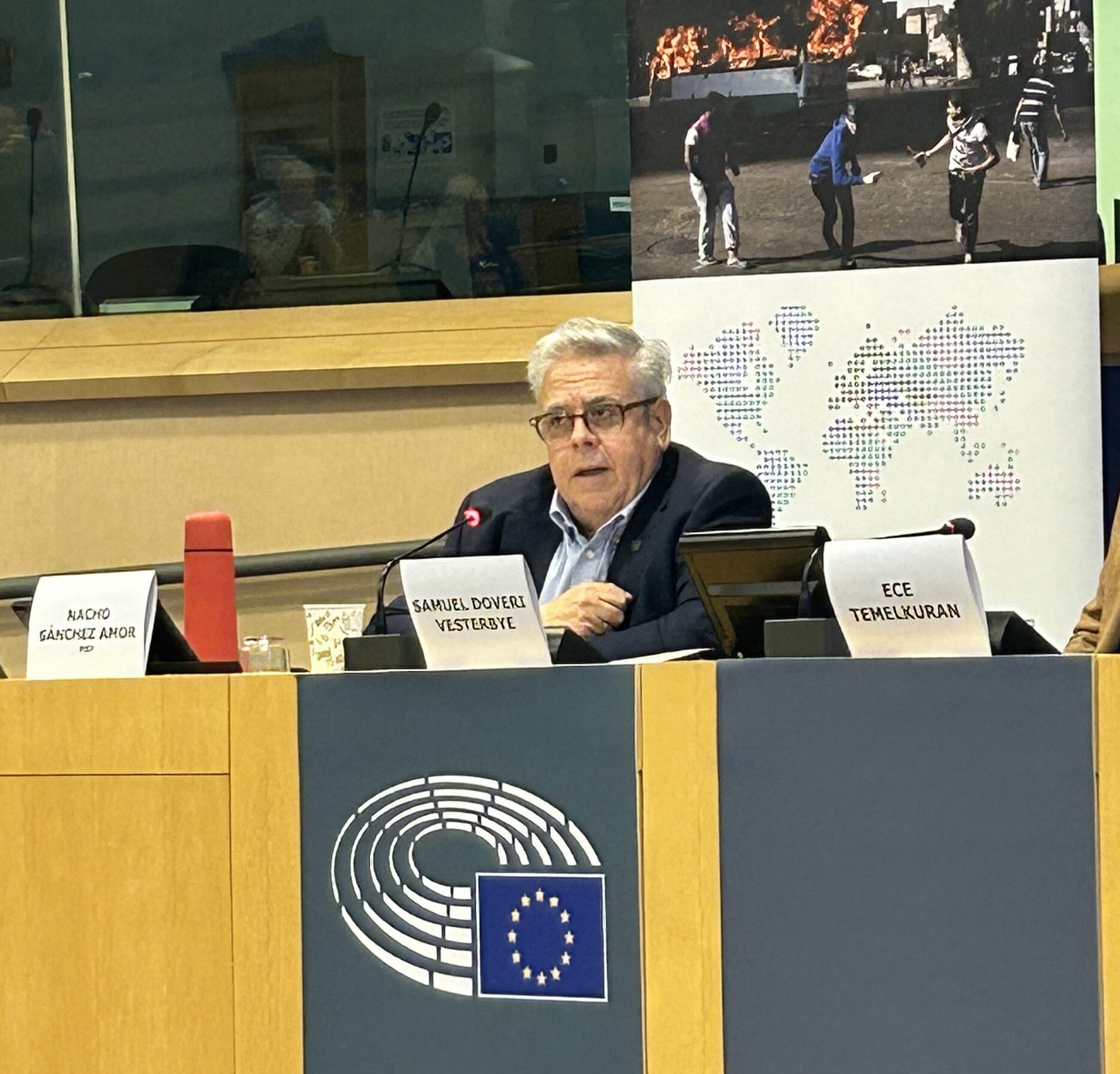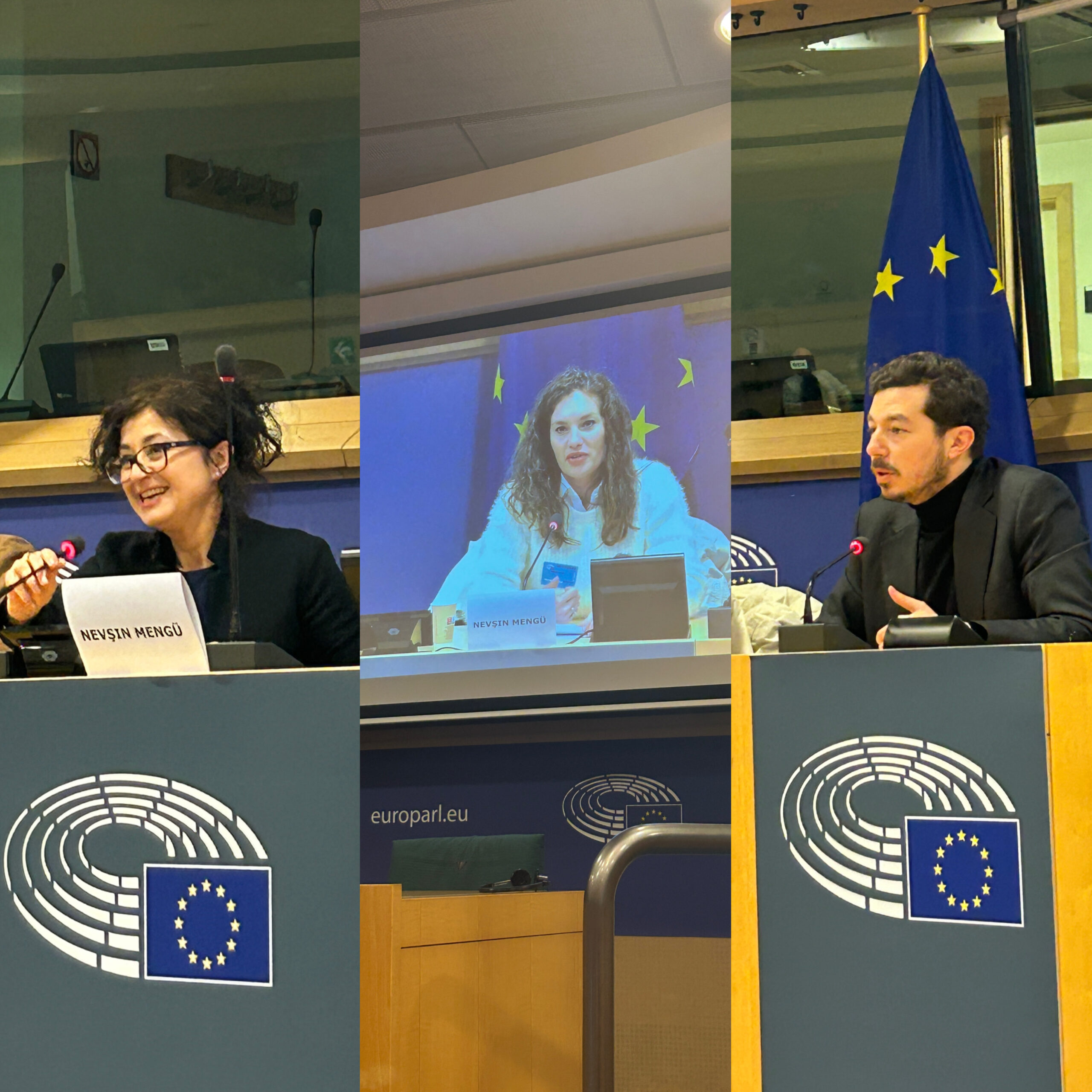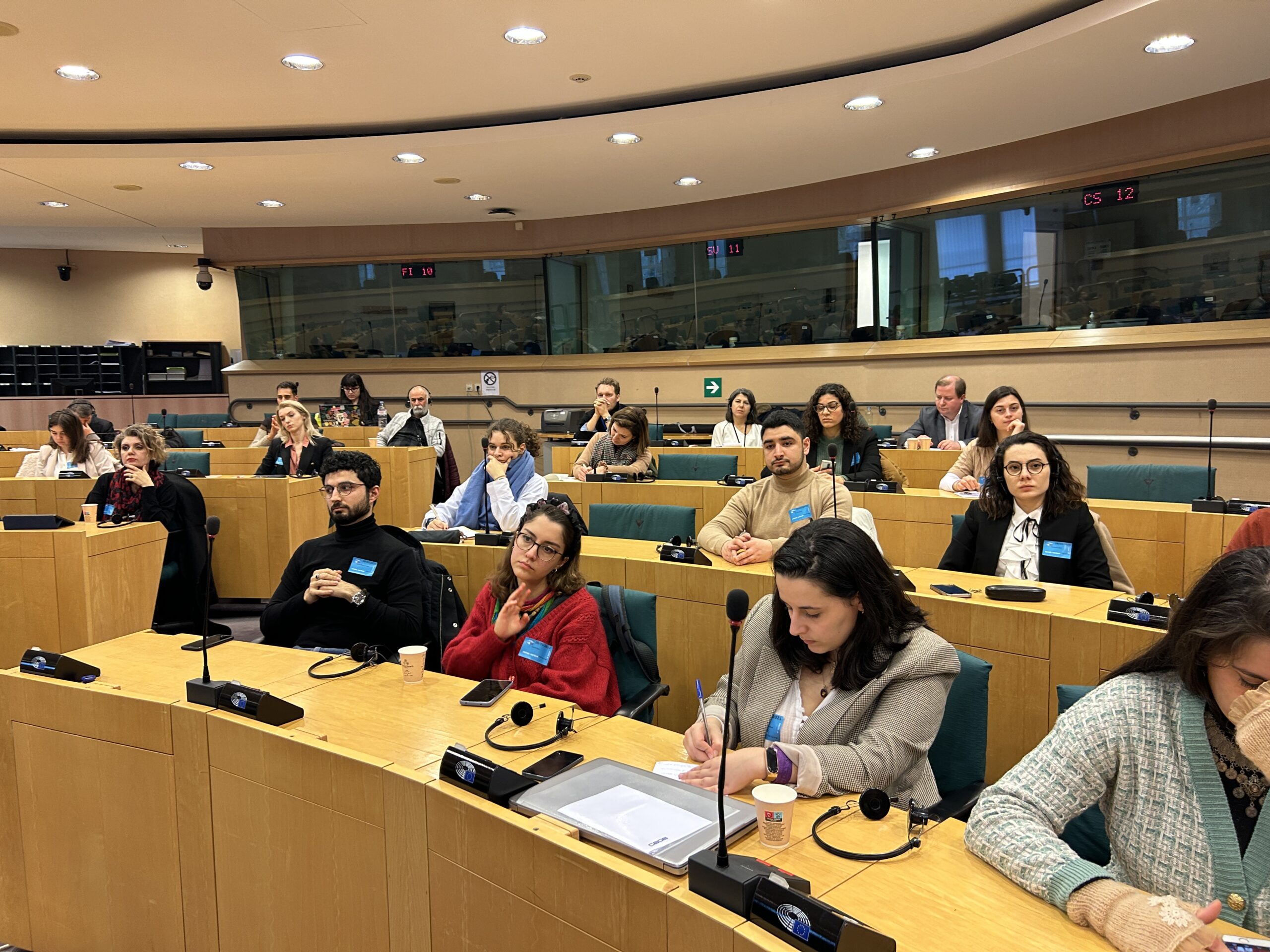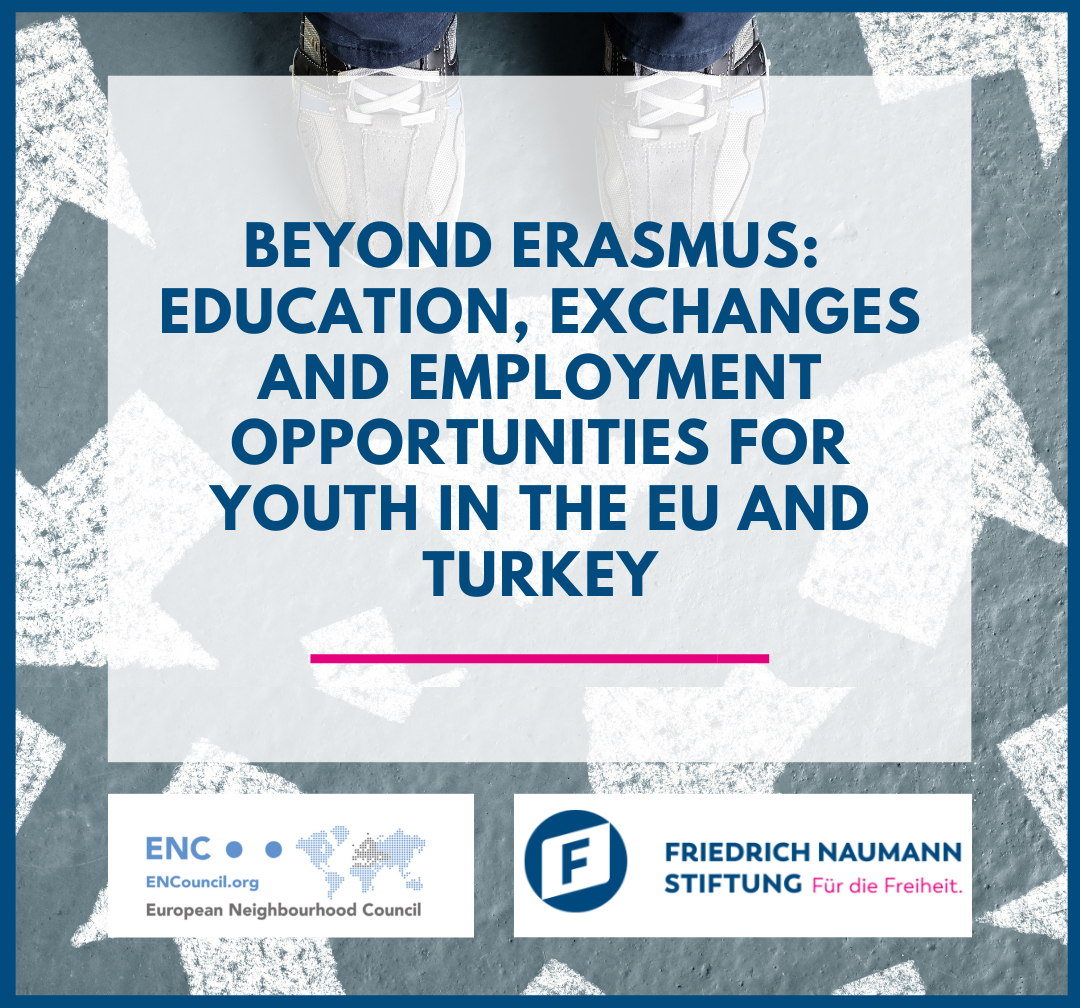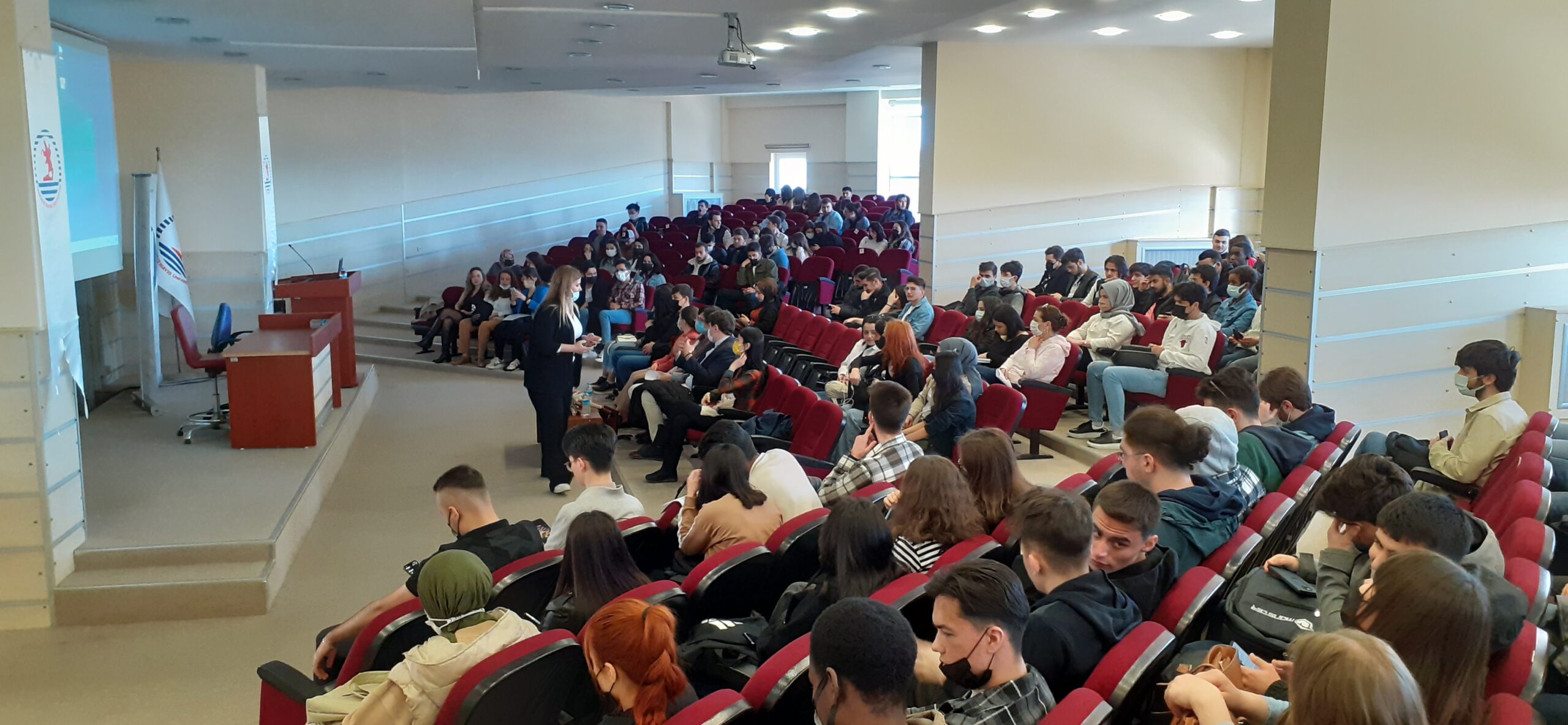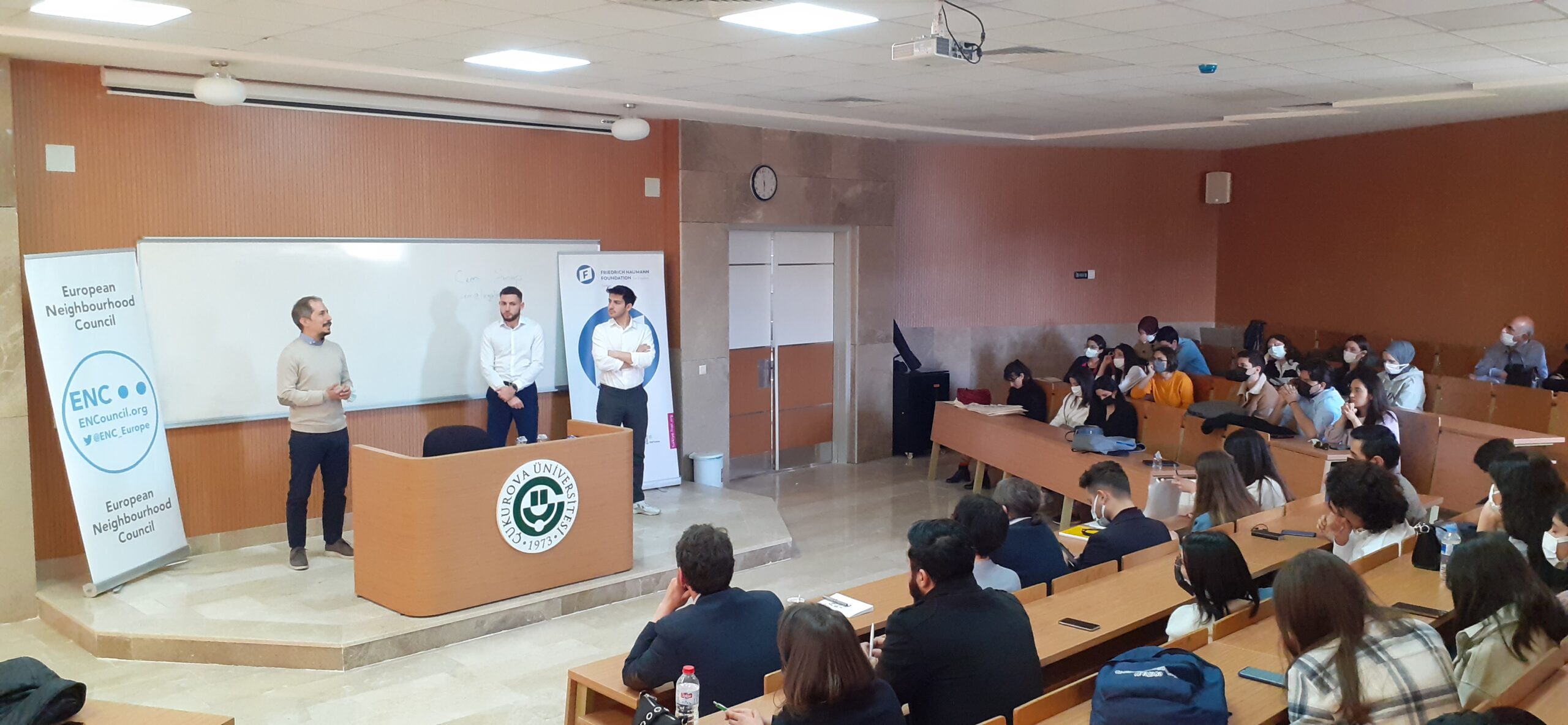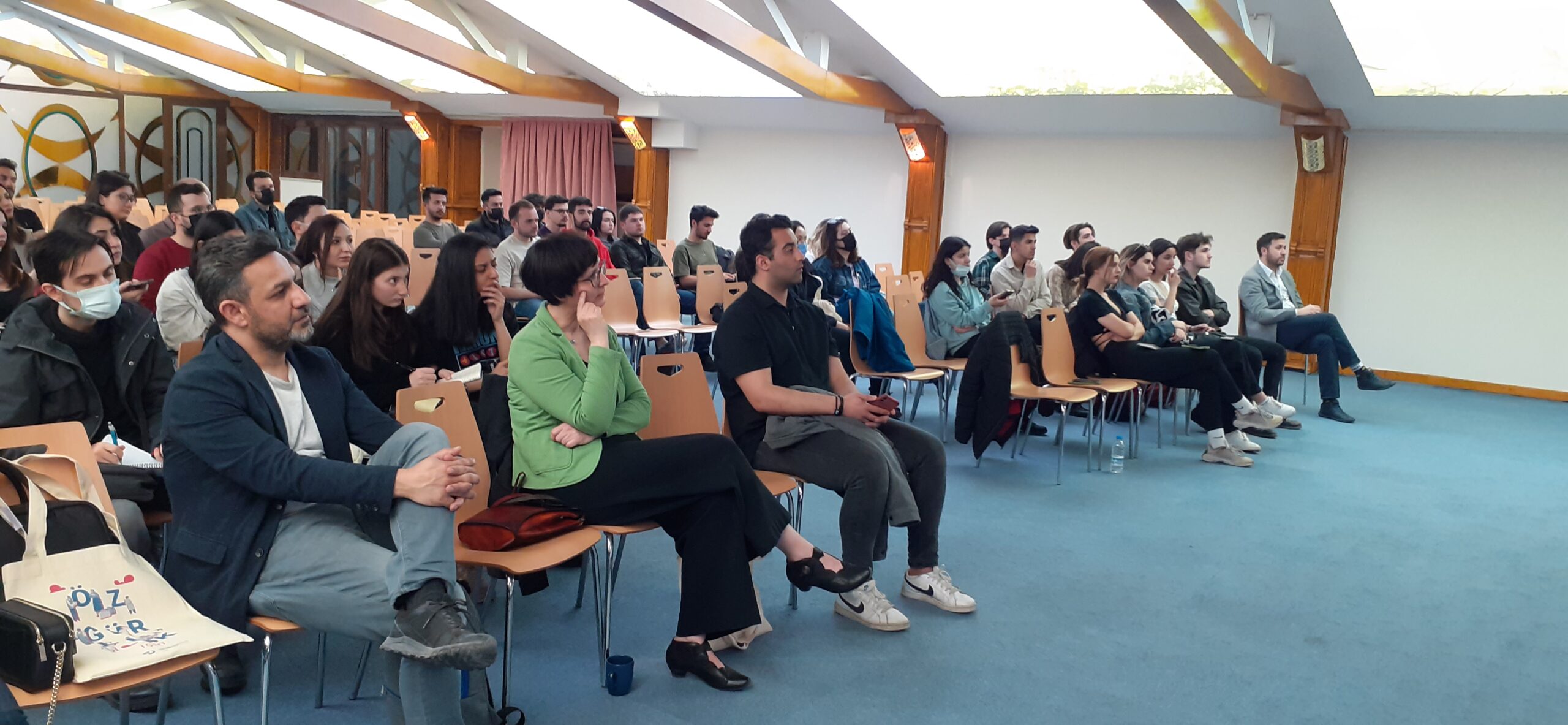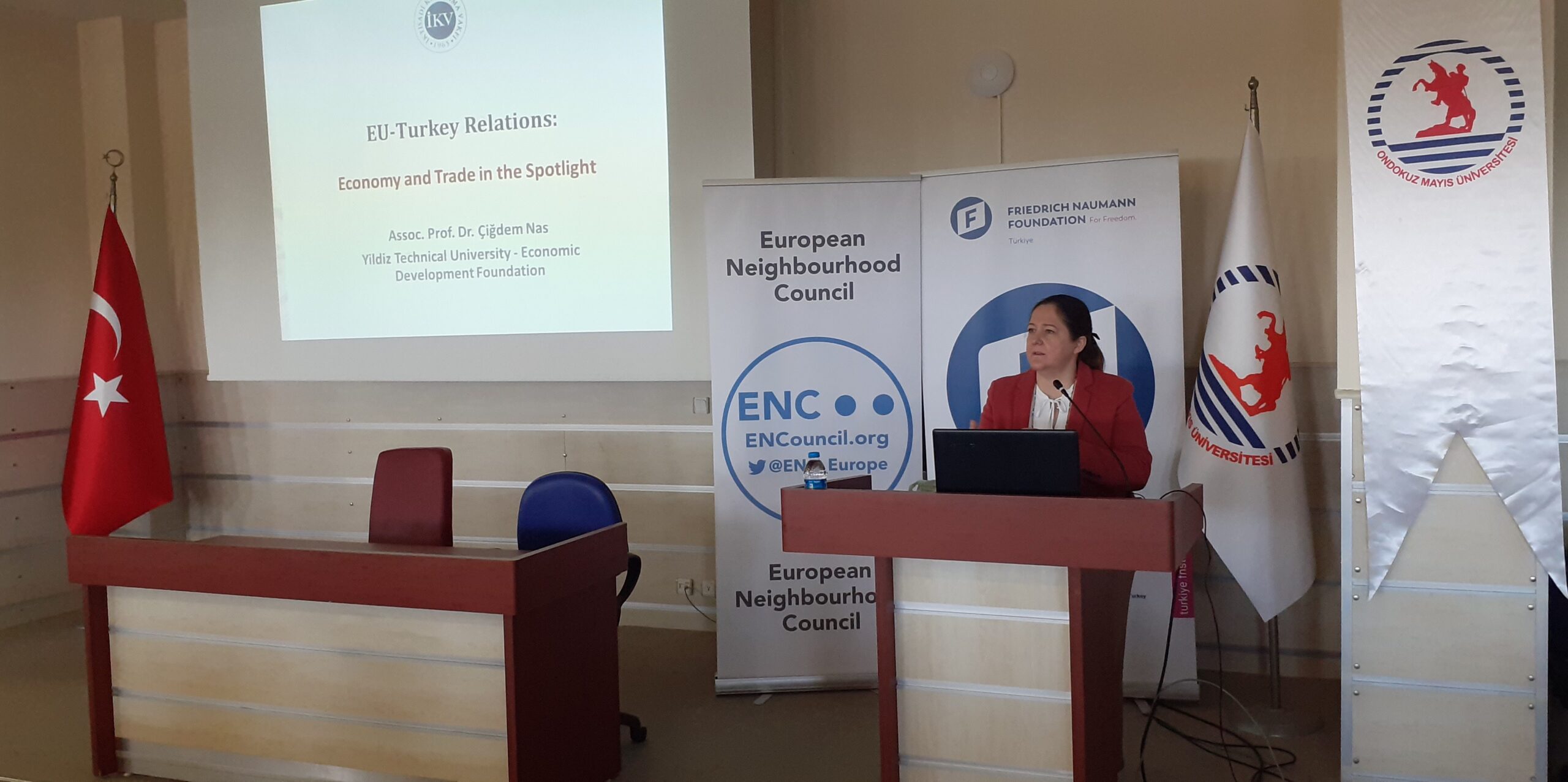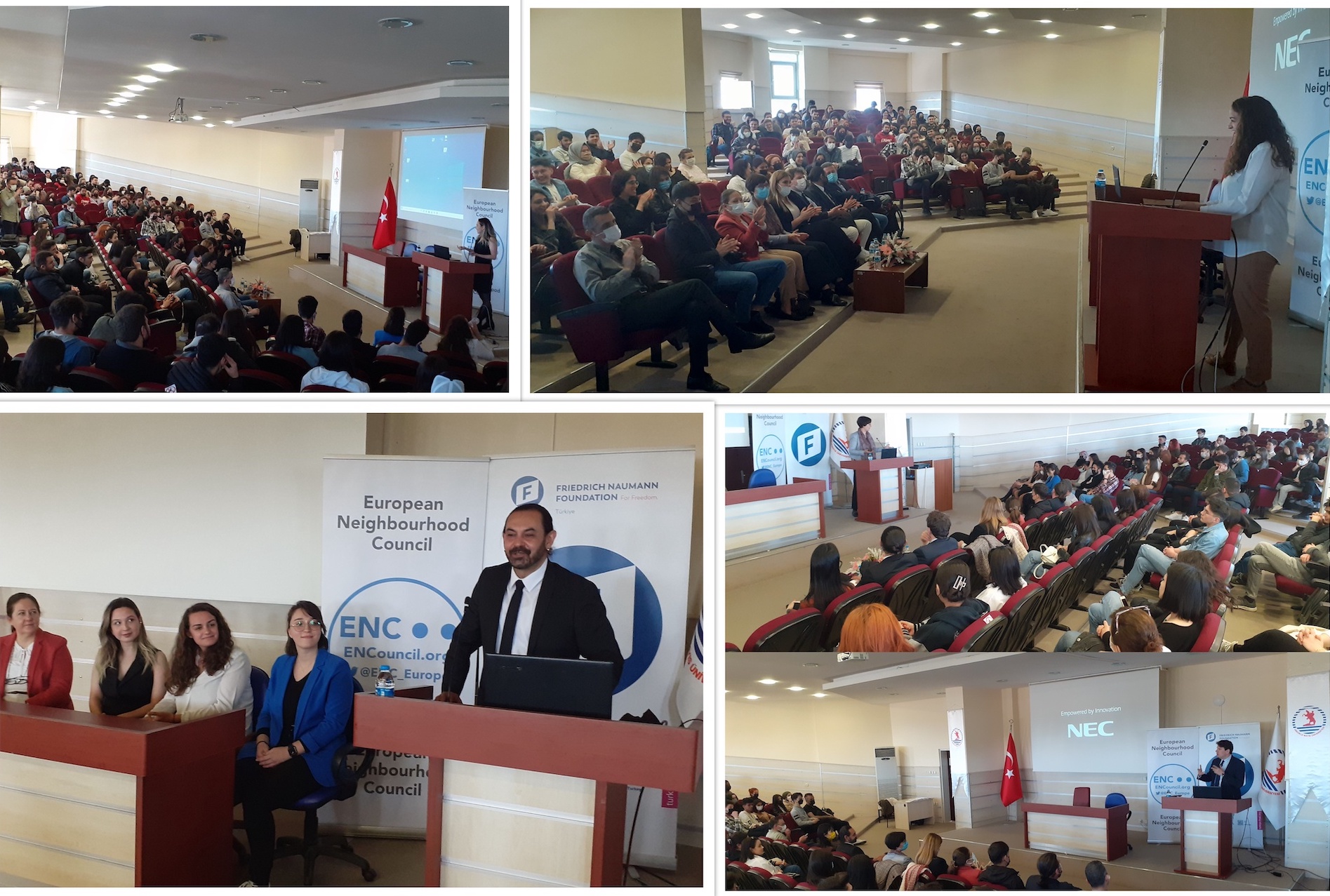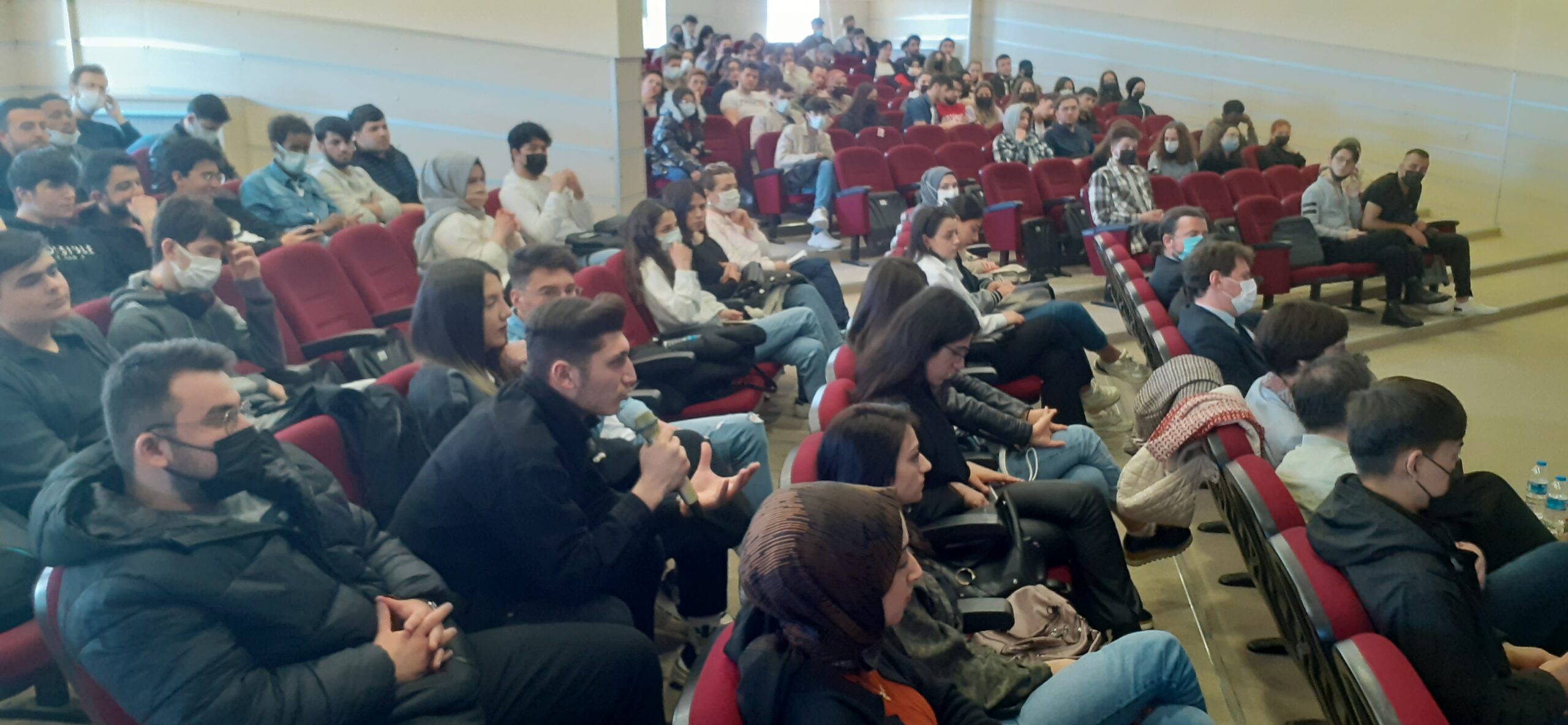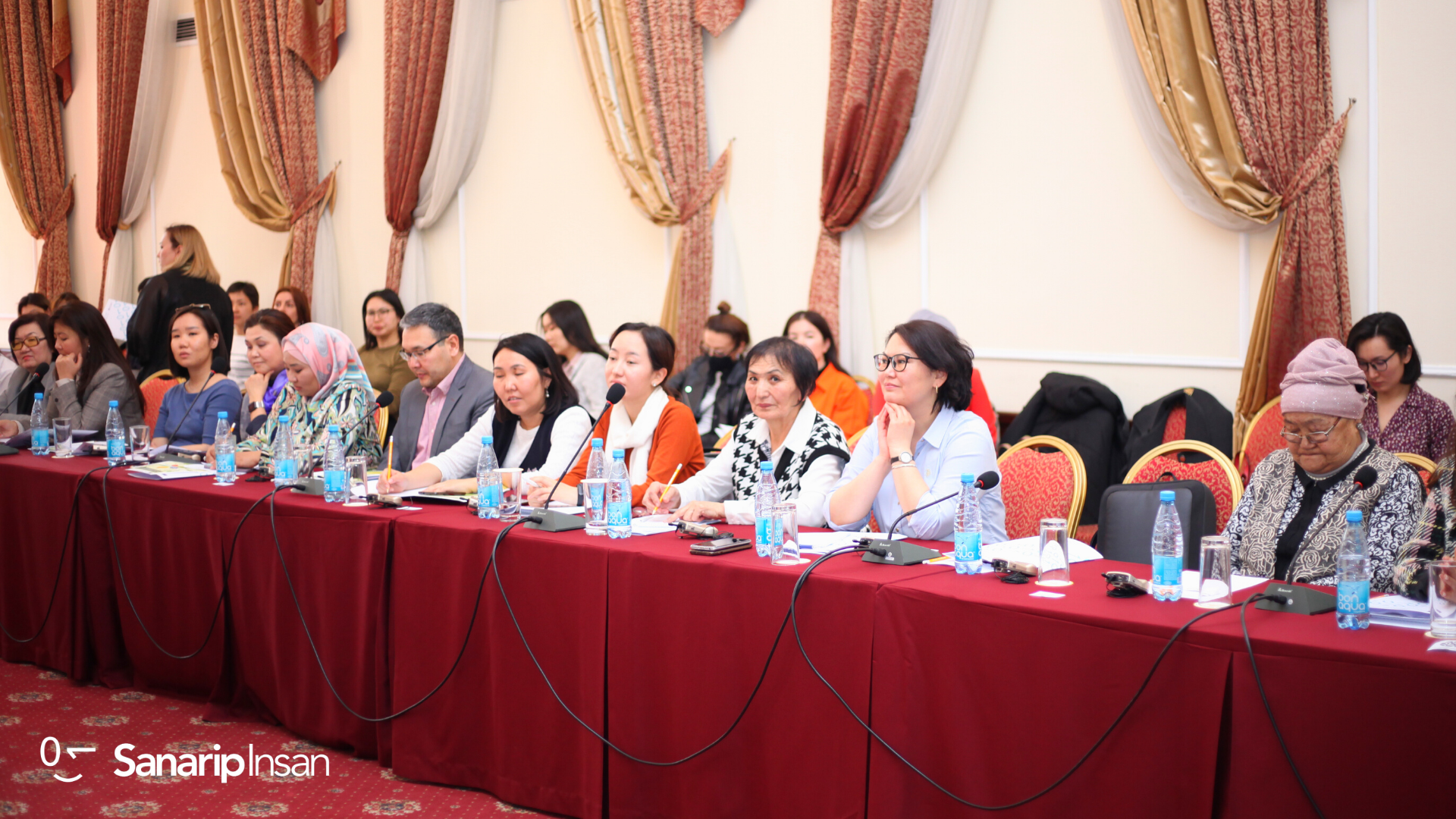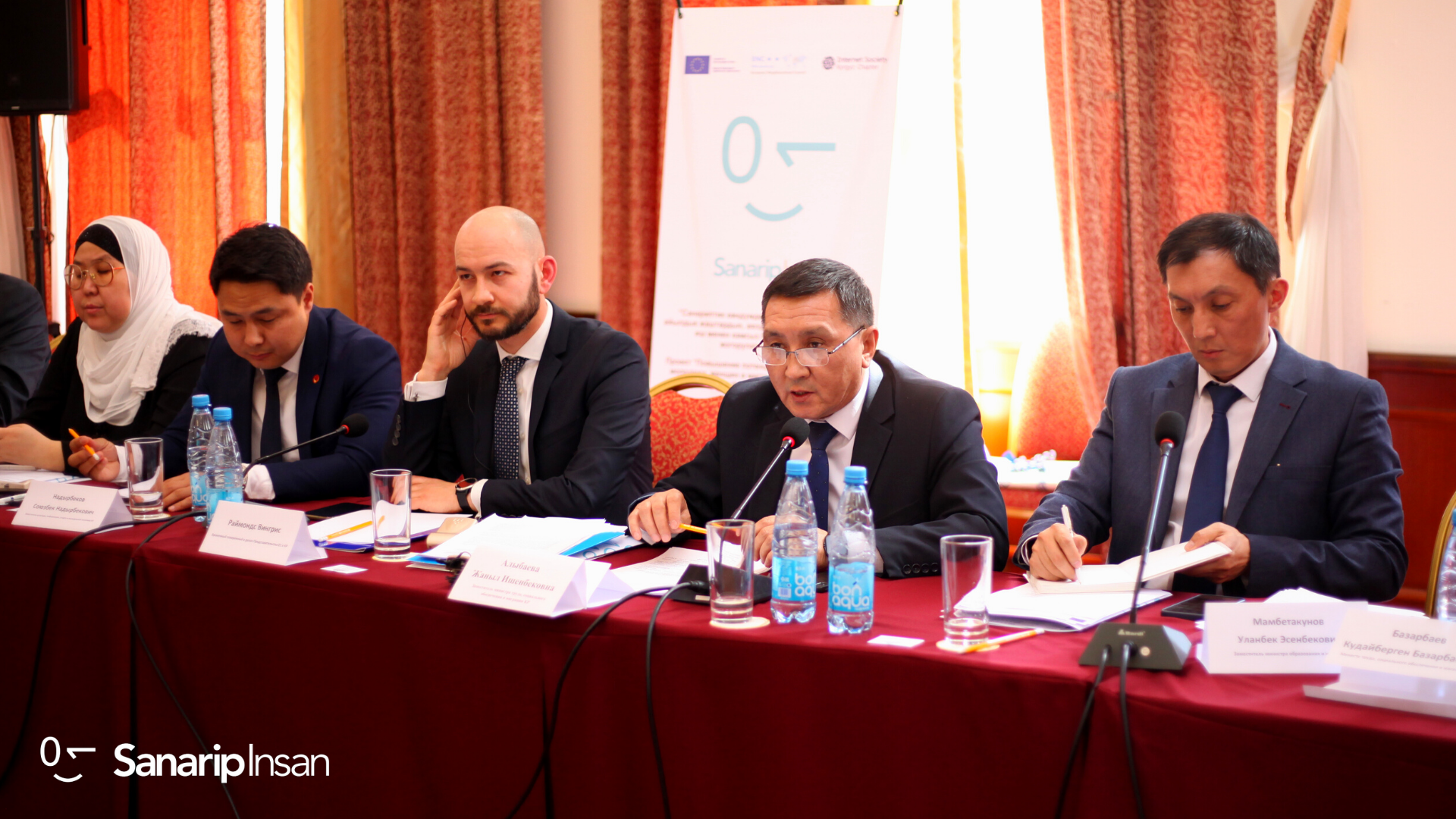
CLOSING EVENT
Forum of the “Sanarip Insan” project on the promotion of equal economic opportunities and sustainability of youth and women

Date: March 4, 2024
Time: 12.00 – 17.30 KGT
Location: Bishkek, Manasa str., 16 Novotel Bishkek City Center
The agenda of the event can be found here.
On March 4, 2024, the Kyrgyz Internet Society will host the forum “Promoting equal economic opportunities and sustainability of youth and women” where the EU-funded “Sanarip Insan” project will sum up its results. Project managers, startup beneficiaries, training beneficiaries, journalists, and project implementers, represented by representatives of government, development institutions, business and educational structures will summarize the results of the project, discuss the tangible effects of digitalization of education for the population, problems, and opportunities for involving all stakeholders in the implementation of the project. Guests will also be able to see an exhibition of project beneficiaries and startup competition winners.
The Sanarip Insan project is is being implemented by the European Neighbourhood Council together with the Kyrgyz Internet Society with financial support from the European Union. The main components of the project are the development of digital skills capacity among youth, young migrants and women, from basic digital literacy to more in-demand digital skills such as information search, use of digital platforms, social media functionality, financial transactions, online commerce and advanced entrepreneurial skills with using information technology.
Over two and a half years, the project has helped thousands of citizens improve their digital skills, thereby increasing their economic well-being. The project’s activities have led to improved indicators of youth resilience to the Sustainable Development Goals and the protection of human rights and contributed to inclusive economic growth in rural areas of Kyrgyzstan, which will have a positive impact on the country’s digital economy.
During this 30-month project, 500 individuals and youth attended two-day courses on digital tourism and e-commerce in seven regions of Kyrgyzstan; 356 new jobs were created (11 times more than planned). The Mobile Internet Skills Training Toolkit (MISTT) is published in Russian and Kyrgyz with the support of the GSMA Foundation, which helps enhance digital literacy among the population. Videos about the benefits of using digital platforms are broadcast on national and regional television channels, reaching a total audience of 4 million people. About 100 videos and the same number of presentation materials on Microsoft Digital Literacy are available for teachers in the Kyrgyz language to improve computer literacy. The Python programming language is now available to every citizen of Kyrgyzstan in the Kyrgyz language. Ten digital startups from all regions of the country received support with a total prize fund of 2.7 million soms, creating 255 jobs through startup acceleration and financing.
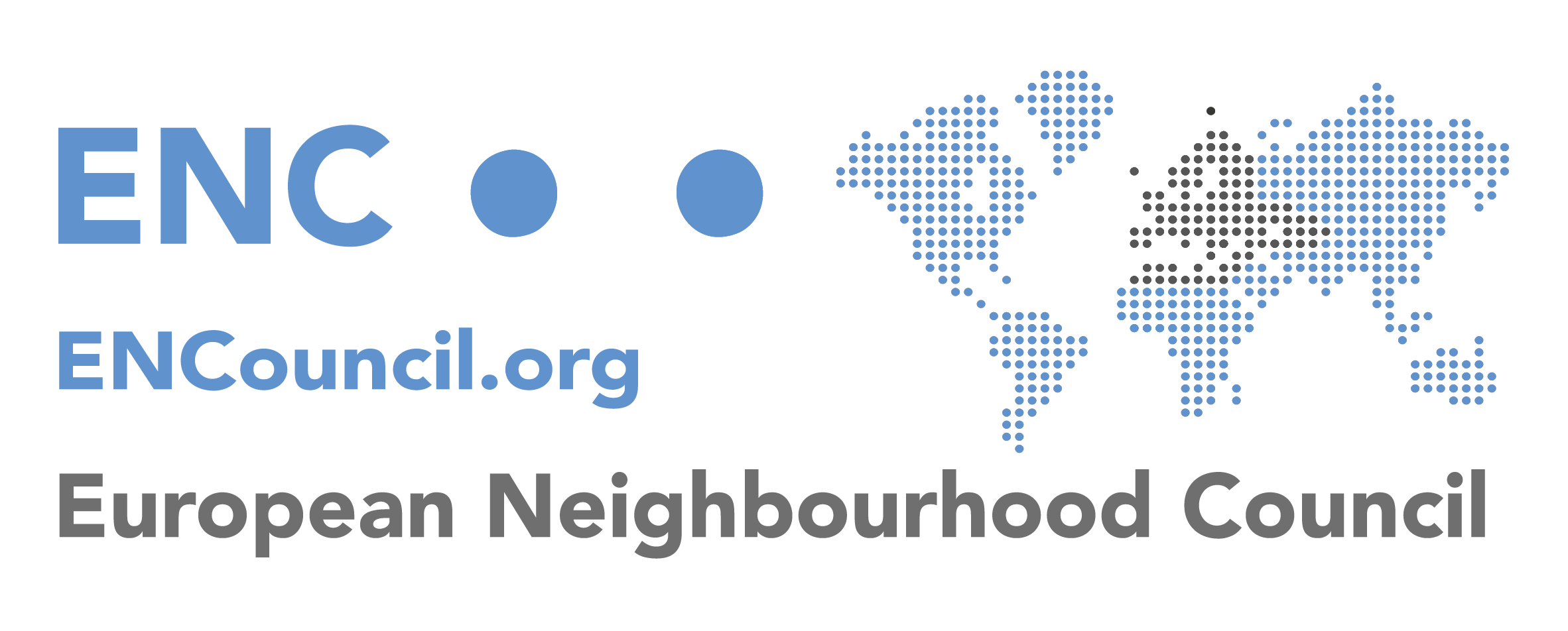
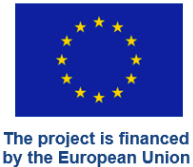


 The first panel titled “Central Asia: A Rising Investment Destination – Insights from the Inaugural EU-Central Asa Investors Forum” hosted Central Asia Ambassadors, namely, H.E. Gairat Fozilov (Ambassador of Uzbekistan to Belgium, Head of Mission the European Union), H.E. Baimukhan Margulan (Ambassador of Kazakhstan to Belgium, Head of Mission the European Union), H.E. Muzaffar Huseinzoda (Ambassador of Tajikistan to Belgium, Head of Mission the European Union) and H.E. Sapar Palvanov (Ambassador of Turkmenistan to Belgium, Head of Mission the European Union) and was modarated by Oybek Shaykhov, Secretary General of the EUROUZ. During their remarks, the Ambassadors emphasized that the European Union and Central Asia are committed to improving connectivity and cooperation in several fields such as renewable energy, transportation, critical raw materials, and more.
The first panel titled “Central Asia: A Rising Investment Destination – Insights from the Inaugural EU-Central Asa Investors Forum” hosted Central Asia Ambassadors, namely, H.E. Gairat Fozilov (Ambassador of Uzbekistan to Belgium, Head of Mission the European Union), H.E. Baimukhan Margulan (Ambassador of Kazakhstan to Belgium, Head of Mission the European Union), H.E. Muzaffar Huseinzoda (Ambassador of Tajikistan to Belgium, Head of Mission the European Union) and H.E. Sapar Palvanov (Ambassador of Turkmenistan to Belgium, Head of Mission the European Union) and was modarated by Oybek Shaykhov, Secretary General of the EUROUZ. During their remarks, the Ambassadors emphasized that the European Union and Central Asia are committed to improving connectivity and cooperation in several fields such as renewable energy, transportation, critical raw materials, and more.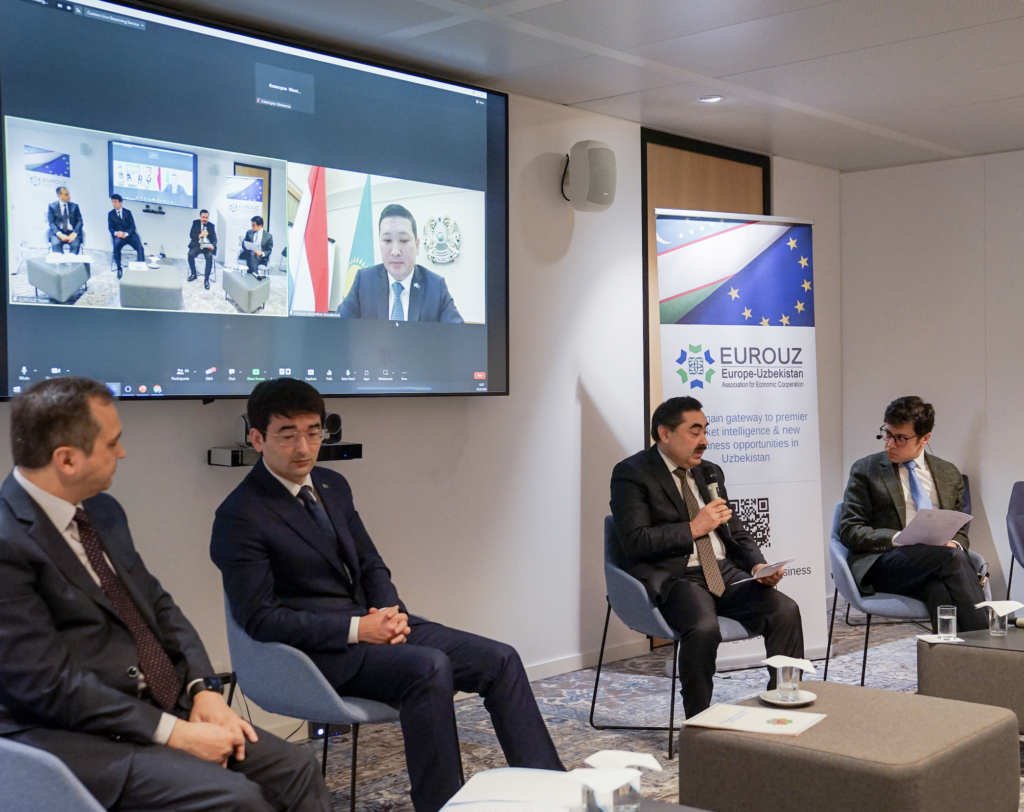 The second session, moderated by ENC Director Samuel Doveri Vesterbye, focused on the Middle Corridor and Central Asia’s role in the framework of EU global engagement, business, and human development. Eminent speakers included Camilla Brückner, the director of the UNDP Brussels Representation Office; Dmitry Mariyasin, the deputy executive secretary at the UN Economic Commission for Europe; Emmanuel Dupuy, the president of the Institut Prospective et Securité en Europe, or IPSE; and Katarzyna Wawiernia, the resident representative of the UN Development Program in Kazakhstan. The speakers offered insightful information on a variety of topics, including the significance of a systematic EU approach, the integration of smart regulation and digitalization with infrastructure development, France’s role in the Global Gateway, the utilization of digital solutions in the new Eurasia SDG platform, and the promotion of sustainable maritime sector development in the Caspian Sea through partnerships with both domestic and foreign partners.
The second session, moderated by ENC Director Samuel Doveri Vesterbye, focused on the Middle Corridor and Central Asia’s role in the framework of EU global engagement, business, and human development. Eminent speakers included Camilla Brückner, the director of the UNDP Brussels Representation Office; Dmitry Mariyasin, the deputy executive secretary at the UN Economic Commission for Europe; Emmanuel Dupuy, the president of the Institut Prospective et Securité en Europe, or IPSE; and Katarzyna Wawiernia, the resident representative of the UN Development Program in Kazakhstan. The speakers offered insightful information on a variety of topics, including the significance of a systematic EU approach, the integration of smart regulation and digitalization with infrastructure development, France’s role in the Global Gateway, the utilization of digital solutions in the new Eurasia SDG platform, and the promotion of sustainable maritime sector development in the Caspian Sea through partnerships with both domestic and foreign partners. The panels were followed by a very engaging Q&A session. The questions spanning from the distinction between China’s Belt and Road Initiative and Global Gateway to the EU’s foreign policy regarding Central Asia were posed by the guests who are experts, think tankers, EU officials, academics and representatives of other important organizations.
The panels were followed by a very engaging Q&A session. The questions spanning from the distinction between China’s Belt and Road Initiative and Global Gateway to the EU’s foreign policy regarding Central Asia were posed by the guests who are experts, think tankers, EU officials, academics and representatives of other important organizations.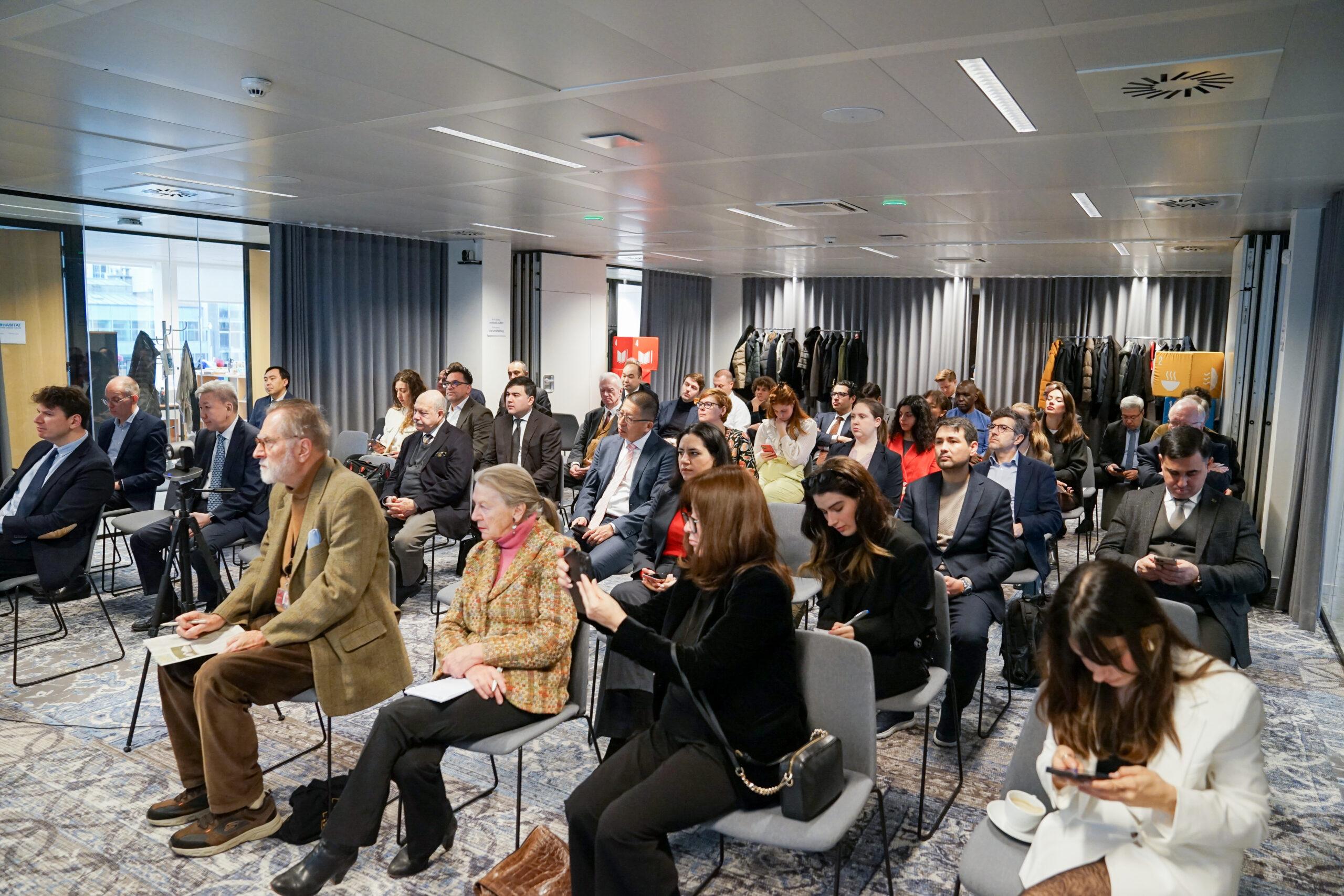 You can watch the event below:
You can watch the event below:

